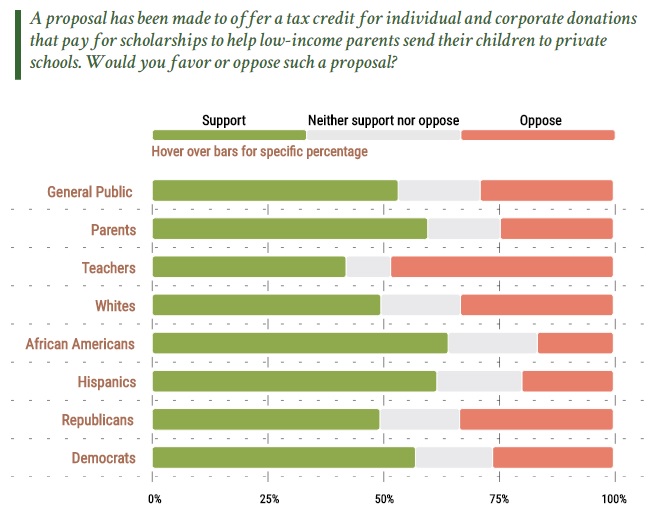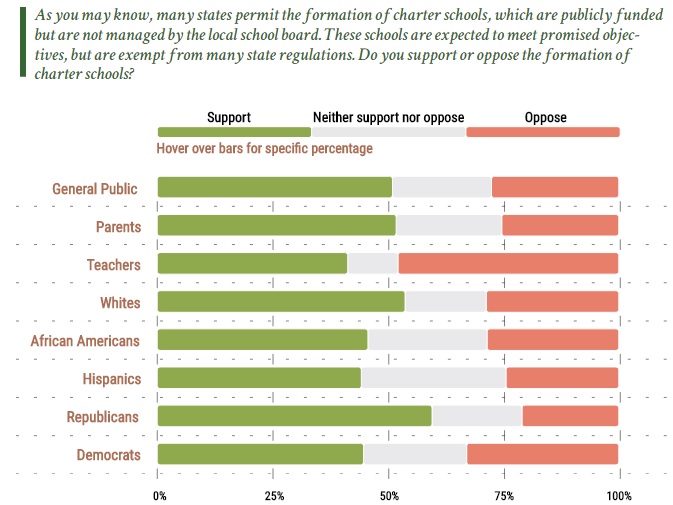Republicans are often the strongest backers of school vouchers in Congress and state legislatures, but among rank-and-file partisans, private school choice may actually enjoy greater backing from Democrats.
That’s one of the more surprising findings from the latest wide-ranging public opinion survey by the school reform journal Education Next.
The poll finds support for private school vouchers may be slipping, but support for tax credit scholarships and charter schools holds steady despite recent controversies. The annual survey’s large sample means subtle trend lines and relatively small gaps can still be meaningful. This year’s version has a margin of error of roughly 1.5 percent.
Tax credit scholarships remain the most popular form of private school choice. They garner the support of 57 percent of Democrats surveyed, as well as a 49-percent plurality of Republicans.

For private school vouchers, the numbers aren’t quite as strong. The Ed Next editors note support for vouchers targeted at low-income families remains lower than for universal vouchers available to all, and that Democrats may be growing more supportive of universal vouchers.
Whereas 55% of the general public favored targeted vouchers in 2012, only 43% do in 2016. The decline was particularly severe among Republicans, falling from 51% to 37%. Among Democrats, support slipped from 58% to 49%.
The popularity of vouchers for all families (universal vouchers) has also reached a new low. In 2014, they were favored by 56% of the public, but only 50% back them in 2016. When it comes to universal vouchers, 51% of Republicans liked the idea in 2014, while just 45% do in 2016. Democratic support for such vouchers has increased from 49% in 2013 to 56% in 2016.
On a podcast discussing the results, Paul Peterson, director of the Program on Education Policy and Governance at the Harvard Kennedy School, posited that among Republicans, vouchers may suffer from the perception that they’re “just another welfare program.”
“It’s an amazing finding, actually, that if we look back over the years, we always find Democrats more supportive of vouchers than Republicans, and that’s even more true than ever right now,” he said.
The partisan split could also be driven, in part, by black and Hispanic Democrats. Those groups are considerably more likely than white people to support private school choice — a finding that has been consistent across multiple public opinion surveys, but oddly doesn’t carry over to charter schools in the Ed Next poll.

Members of both parties support still tend to support charters, which means they’re consistent with the other school choice findings from Ed Next in one respect: They show the Democratic Party’s elite may be out of step with its voters, who tend to back school choice in all its forms.


